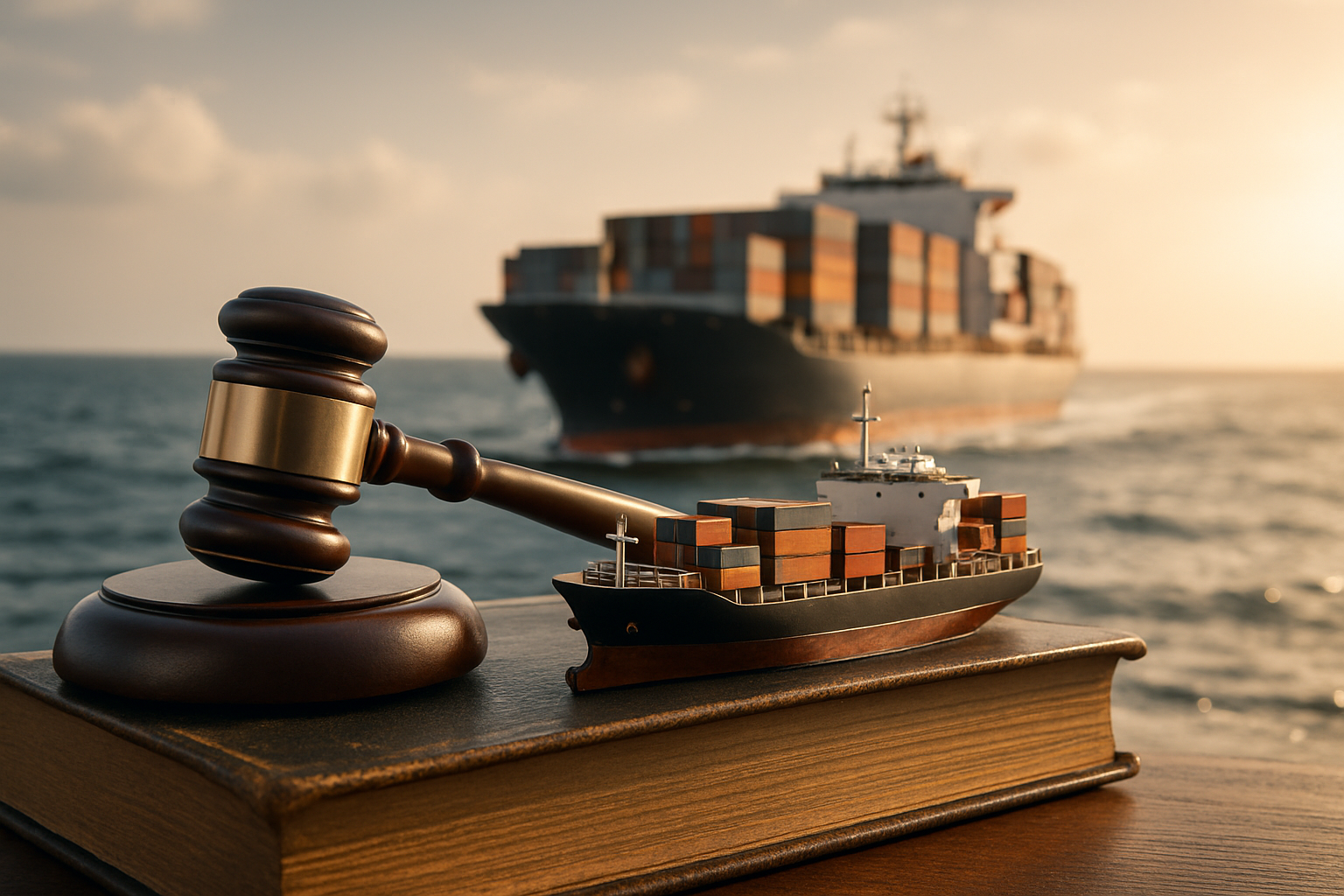The Nuances of Admiralty Law in Modern Maritime Commerce
Introduction: In the complex world of international trade and maritime operations, admiralty law stands as a critical yet often overlooked pillar of global commerce. This specialized branch of law governs maritime disputes, shipwrecks, and oceanic affairs, playing a crucial role in maintaining order on the high seas. As global trade continues to expand, understanding the intricacies of admiralty law becomes increasingly vital for businesses, governments, and legal professionals alike.

Jurisdiction and Scope of Admiralty Courts
Admiralty courts have a unique jurisdiction that extends beyond territorial waters. In many countries, including the United States, admiralty cases are heard in federal courts due to their international nature. These courts handle a wide range of issues, from ship collisions and cargo disputes to maritime contracts and pollution incidents. The scope of admiralty law is vast, covering not only oceangoing vessels but also inland waterways, offshore oil rigs, and even some aviation matters related to overseas transport.
Key Principles of Modern Admiralty Law
Modern admiralty law is built on several fundamental principles that distinguish it from other legal domains. The concept of general average, for instance, requires all parties involved in a sea venture to share proportionally in losses incurred for the common good. Another crucial principle is the maritime lien, which allows claims against a vessel itself, regardless of ownership changes. These unique features of admiralty law reflect the distinctive challenges and risks associated with maritime activities.
International Conventions and Their Impact
The global nature of maritime commerce necessitates international cooperation in admiralty law. Numerous conventions, such as the United Nations Convention on the Law of the Sea (UNCLOS) and the International Convention for the Safety of Life at Sea (SOLAS), shape the modern legal landscape of maritime affairs. These agreements establish rules for territorial waters, navigation rights, and safety standards, significantly influencing national admiralty laws and international maritime practices.
Admiralty Law in the Age of Technological Advancement
As technology transforms the maritime industry, admiralty law must evolve to address new challenges. The rise of autonomous ships, for example, raises complex questions about liability and responsibility in case of accidents. Cybersecurity threats to maritime operations present another frontier for admiralty law to navigate. Environmental concerns, particularly regarding marine pollution and climate change impacts, are also pushing admiralty law to adapt and incorporate new regulatory frameworks to protect oceanic ecosystems.
The Future of Admiralty Law
Looking ahead, admiralty law faces several emerging challenges and opportunities. The opening of new shipping routes in the Arctic due to climate change will require new legal frameworks to manage territorial claims and environmental protections. Additionally, the increasing use of blockchain technology in shipping documentation may revolutionize how maritime contracts are executed and disputes are resolved. As global trade patterns shift and new technologies emerge, admiralty law will continue to play a crucial role in facilitating smooth international commerce while protecting the interests of all parties involved in maritime ventures.






